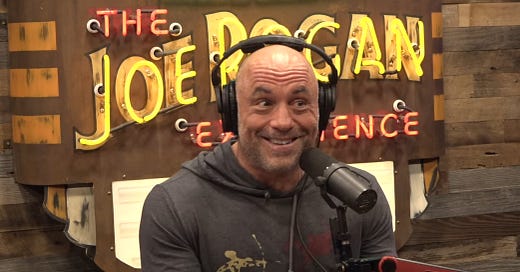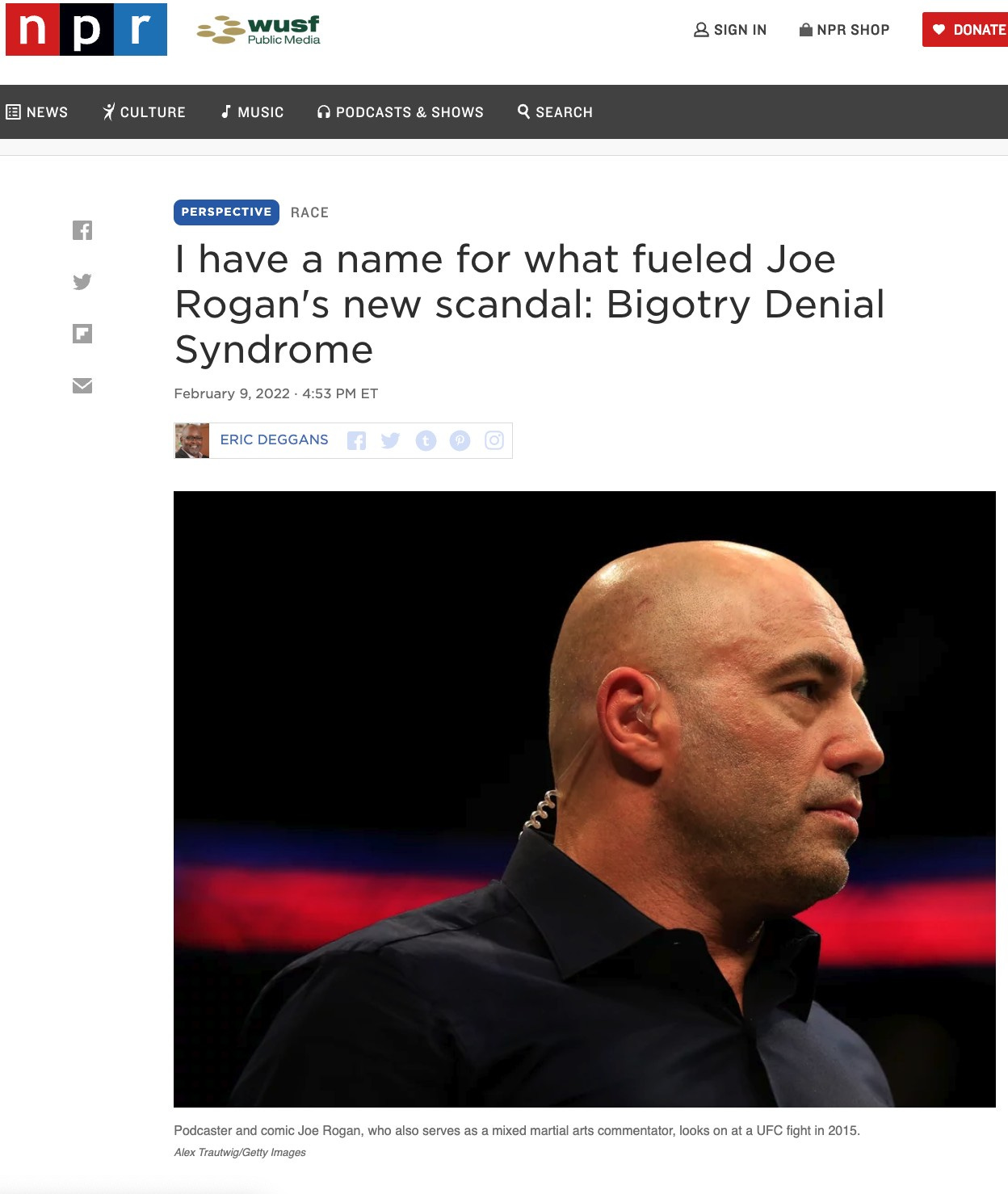How Joe Rogan's Bigotry Denial Syndrome highlights challenge of media "manosphere."
Refusing to face how some actions can exacerbate prejudice, sexism and stereotypes doesn't keep it from happening.
A few years ago, I wrote a piece for NPR about Joe Rogan and a dynamic I called Bigotry Denial Syndrome. BDS is a way some people have of rationalizing conduct which exacerbates racism or prejudice -- reasoning that, because they don’t personally consider themselves to be bigots, they couldn’t possibly traffic in or encourage bigotry themselves.
The problem with ideas like that is, like many rationalizations, it isn’t really true. In fact, thinking that you are somehow impervious to influence by stereotypes or prejudice can make you MORE susceptible to their influences, because you’re less likely to engage in the kind of critical thinking and research which can dismantle them.
Rogan stumbled into these issues back in 2022, when he apologized for using the n-word numerous times years ago on his popular podcast. After a video surfaced showing him using the word multiple times and cracking a racist joke referencing the Planet of the Apes, the comic/host posted a five-minute-plus apology on Instagram for what he called “the most regretful and shameful thing that I've ever had to talk about publicly.”
He also insisted that he didn’t use the word in a racist way, following an ethic he now says was wrong, which held white people should be able to use the word if their intent isn't to denigrate Black people.
But, as I noted in my column nearly three years ago, the problem isn’t hurt feelings or intent. The bigger issue is the way such jokes foster acceptance of stereotypes that are damaging and persistent; prejudices which can affect everything from how police react in an emergency to who gets hired for a job or gets to rent an apartment.
And now that Rogan has been hailed as a kingmaker who can swing elections and serve as the face of a “manopshere” filled with guy-oriented, male-hosted podcasts and media platforms -- often focused on pushing back against conventional wisdom about everything from COVID vaccines to transgender issues – the questions about BDS remain.
Can you joke about comparing Puerto Rico to a floating pile of garbage and insist you are not racist? Can you persist in talking up baseless rumors about immigrants eating pets and say prejudice isn’t part of why many people want to believe them? Is it possible to pretend that concern about the minute number of transgender people trying to compete in sports programs somehow isn’t the result of an unreasonable prejudice against transgender people in general?
I remain blown away by this commentary from Bill Maher, looking at figures indicating increasing numbers of people identifying as LGBTQ over the years, because he doesn’t bother noticing one obvious influence: As marginalized transgender and gay people find more courage over the years to be themselves in public, that’s probably showing up in surveys, too.
Bigotry Denial Syndrome makes all this avoidance possible and more. Especially for those feeling hemmed in by the way women, people of color and other marginalized groups have challenged the mainstream to rethink issues of equity, sexism, transphobia and more. BDS makes clinging to outdated values and fears seem more reasonable and less harmful than such actions really are.
I often say that prejudice and stereotyping reacts like a virus – soon as you find a way to limit their influence in society, those ideas adapt and change, finding new methods to infect the public space. So the approaches to defusing them must change, even as the core values behind resisting the virus remain.
So, as a new type of media figure rises to dominate public discourse, it’s worth remembering the lessons from Rogan’s case of Bigotry Denial Syndrome.
Because no amount of rationalization will change how prejudice and stereotypes are fed by the refusal to admit when they reveal themselves in modern media.






What a great article, Eric! Truth be told, the denial of the consequences of our actions do stem from a lack of self-awareness. Even though some people may argue about their intentions, intentions and the impact of such intentions could be disastrous for the other person.